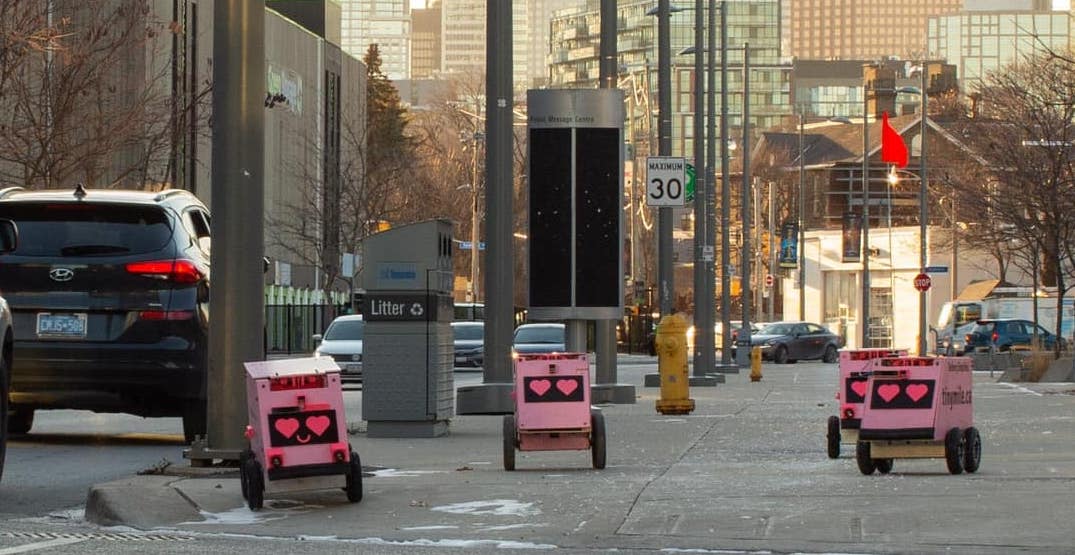
Photo: tiny-mile
Toronto city council votes to ban pavement robots
21 December 2021
by Christopher Carey
Toronto City Council has voted to ban automated robots from operating on pavements and cycle lanes until a provincial pilot scheme is in place.
The decision prohibits the use of “automated micro-utility devices” such as food delivery robots operated by robotics company Tiny Mile, which some city restaurants have been using to courier orders.
The ban came after the Toronto Accessibility Advisory Committee – composed of members of the public and the City Council – asked city councillors to restrict the devices over safety concerns.
“We applaud Toronto City Council for stopping the creation of a serious new disability barrier and for requiring City staff to consult with people with disabilities as well as law enforcement and public safety experts about the dangers that robots on sidewalks pose for the public,” said David Lepofsky, Chair of the Accessibility for Ontarians with Disabilities Act Alliance (AODA Alliance).
“The Disabilities Act requires Ontario to become accessible by 2025. Far behind that schedule, Toronto can’t afford to create these new disability barriers.”
Speaking at an earlier hearing, City Councillor Kristyn Wong-Tam said: “We want to remove external barriers so that people can participate in public life.
“With people who are facing barriers, with disabilities, our job is to make sure that that community has a voice to city council.”
Innovation challenge
The committee’s recommendation was aimed at reducing hazards for people with low mobility or vision, as well as the elderly and children, who may be impeded by the devices or unable to detect their presence.
But the City Council plans to hold a ‘Transportation Innovation Challenge’ in the second quarter of 2022, which would explore and support local economic development with respect to pavement robots.
The amendment requests that Toronto’s General Manager of Transportation Services Barbara Gray consult with local entrepreneurs, sidewalk robot manufacturers, accessibility community members and law enforcement before reporting back to the Infrastructure and Environment Committee on their findings.
“We of course would rather not have to fight this battle again next year, but are ready to do so if necessary,” Lepofsky told Cities Today.
“We are also happy to see that a City staff investigation of this issue requires consultation with people with disabilities and to law enforcement.
“People need to seriously talk about how such robots could be misused if allowed on sidewalks.”
Deeply worrying
Tiny Mile’s delivery robots, nicknamed Geoffrey, began delivering in Toronto in September 2020.
The devices, which can travel at a speed of up to 6 kmph, are remotely controlled by human operators from a central office.
“Governments – like most organisations – make decisions based on information, many times incomplete information which leads to the wrong decisions,” Tiny Mile CEO Ignacio Tartavull said on LinkedIn.
“What’s deeply worrying is that the process that led to this decision didn’t include any research but only brainstorming ways to mislead the public on the reasoning and the outcome.”
Image: Tiny Mile











